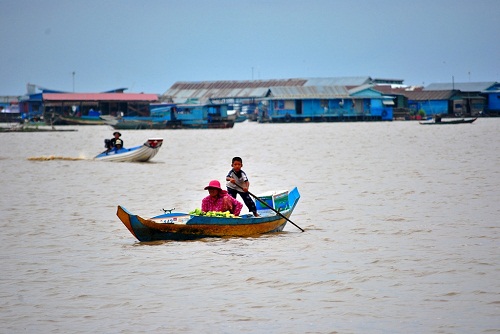A representative from PanNature suggested clearly defining the non-profit status of science and technology organizations to facilitate research, technology transfer, and application. This clarity would also enhance international collaboration and attract funding.

Mekong hydropower dams: Laos considering, Vietnam needs “quick reactions”
Laos promises to consult with experts and consider the construction of hydropower dams on Mekong River is the good news for Vietnam. However, scientists say Vietnam needs to act promptly to take full advantage of its opportunities.
The comment was made by Nguyen Viet Dung, Deputy Director of PanNature, a Vietnamese not-for-profit organization dedicated to protecting and conserving diversity of life and improving human well-being.
Dung believes that what needs to be done immediately is to provide reports on the possible impacts of the hydropower dams on the Mekong’s lower course. The reports, with convincing arguments and figures, need to be provided to Laos as soon as possible, so that the country can fully consider the pros and cons of its proposed hydropower plant project.

Quick, quicker
The second summit of the International Mekong River Commission has ended with a satisfactory outcome. Vietnam suggested setting up a research team, with the presence of representatives of Laos and Cambodia, which would be charged with analyzing the possible impacts of the hydropower plants on Mekong.
Vietnam, at the summit, proposed that Laos waits for Vietnam’s research work to reach a conclusion before it decides whether to move ahead with its project. The research is expected to be completed by the end of 2015.
Deputy Minister of Foreign Affairs Ha Kim Ngoc said that Laos has promised to thoroughly consider the possible negative impacts shown by Vietnam and Cambodia.
Dung, applauding Lao goodwill, has urged Vietnamese scientists to carry out the research and make public the result of the research to confirm the dangers to the people in the Mekong’s lower course.
“This would be really a big challenge for Vietnamese researchers, who need to clarify what are the impacts to be caused by hydropower dams and what are the impacts to be caused by other factors,” Dung commented.
“Only by clarifying the issues, will Vietnam be able to convince Laos and involved parties,” he said.
How to make the research outcome recognized?
However, worries still exist. A scientist said the next question is whether the conclusions reached by the research team will be accepted by Laos and the involved parties. And even if they agree on the conclusions of the researchers, will they be cooperative and adjust their plans accordingly?
Dung, agreeing with the opinion, stressed that the research must be conducted with the active participation of representatives from Laos, Cambodia and Thailand as well.
Recent surveys have all shown that Mekong’s basin is one of the five largest river basins in the world to be witnessing the sharpest decline in flow. The annual flow of the Mekong in the lower course has declined by 10 percent over the last 30 years.
The Mekong river section running across Vientiane in Laos has become so depleted that people can cross the river on foot in the dry season. In the Mekong Delta of Vietnam, salt water has invaded the Tan Chau area of An Giang Province, something which never happened in the past.
Mekong has been playing a very important role in Vietnam’s socio-economic development. The Mekong Delta, with an area of 40,000 square kilometers, is home to 20 million people. Its products make up 27 percent of Vietnam’s GDP, and it provides 90 percent of the nation’s rice exports and 60 percent of its seafood export turnover.




Comments (0)